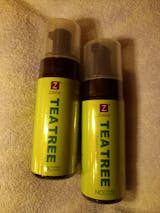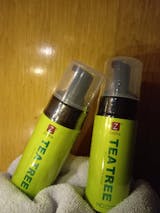Creating a Personalized Body Care Regimen with Natural Products: The Ultimate Guide to Healthy, Glowing Skin
More people are turning to natural body care products. Why? Because they offer benefits like fewer chemicals and better skin health. Creating a skincare routine that fits your unique skin type makes all the difference. The global natural skincare market is booming — it’s growing fast and consumers want safer, eco-friendly options. This guide will help you develop a personalized, natural body care routine that’s safe, effective, and kind to the environment.
Understanding Your Skin Type and Needs
Recognizing Different Skin Types
Knowing your skin type is the first step in choosing natural products. There are five main types:
-
Normal: Balanced and rarely shows oil or dryness.
-
Oily: Shiny skin with enlarged pores.
-
Dry: Feels tight, rough, or flaky.
-
Sensitive: Prone to redness and irritation.
-
Combination: Oily in some areas, dry in others.
To identify yours, wash your face with a gentle cleanser. Wait an hour and observe how your skin feels or looks.
Common Skin Concerns and How Natural Products Help
Natural ingredients can target many issues:
-
Acne: Tea tree oil and salicylic acid soothe and reduce breakouts.
-
Eczema and irritation: Oatmeal and aloe vera calm skin.
-
Hyperpigmentation: Vitamin C and licorice extract lighten dark spots.
-
Aging signs: Green tea and jojoba oil help firm skin.
-
Dry patches: Shea butter and coconut oil deeply hydrate.
The Role of Skin pH and Barrier Function
Skin's pH is slightly acidic, around 4.5 to 5.5. It helps keep harmful bacteria out. Natural products with gentle ingredients protect this balance. Support your skin's protective barrier with nourishing oils and mild cleansers.
Selecting the Right Natural Ingredients for Your Body Care Routine
Top Natural Ingredients and Their Benefits
Focus on these main ingredients:
-
Aloe Vera: Heals and soothes irritated skin.
-
Coconut Oil: Moisturizes and fights bacteria.
-
Shea Butter: Deep conditioner for dry skin.
-
Jojoba Oil: Balances oil production.
-
Green Tea Extract: Anti-aging and antioxidant power. Natural ingredients like these work with your skin, not against it.
How to Read Labels and Identify Authentic Natural Products
Look beyond marketing claims. Check labels for real ingredients like "Aloe Barbadensis Leaf Juice" instead of artificial fragrances. Certifications like USDA Organic or EcoCert help verify authenticity. Trust brands that list their ingredients transparently.
Avoiding Common Harmful Chemicals
Stay away from:
-
Parabens (linked to hormone disruption)
-
Sulfates (can strip skin’s natural oils)
-
Phthalates (found in synthetic fragrances)
-
Synthetic fragrances (may cause allergic reactions) Natural products won’t contain these, making them safer for your skin and the planet.
Crafting Your Personalized Body Care Routine
Daily Body Cleansing with Natural Products
Choose a sulfate-free, gentle cleanser. Look for plant-based surfactants like decyl glucoside. Wash with lukewarm water to avoid stripping vital oils. Pat dry instead of rubbing — gentle touch helps keep your skin healthy.
Moisturizing and Nourishing with Natural Oils and Butters
Applying oils or creams right after your bath locks in moisture. Use jojoba or coconut oil on damp skin. For extra hydration, try whipped shea butter or almond oil. Consistency is key, so moisturize daily.
Targeted Treatments for Specific Skin Concerns
Exfoliate once or twice weekly with natural scrubs like sugar mixed with honey. Use clay masks for detoxification or hydrating masks with aloe and cucumber. Incorporate serums with vitamin C or rosehip oil to help with signs of aging.
Incorporating Natural Remedies for Body Problems
For dry patches or irritation, try DIY remedies. Mix coconut oil with a few drops of tea tree for soothing. Always patch test new treatments on a small skin area first. Avoid overdoing it to prevent irritation.
Building a Sustainable and Eco-Friendly Body Care Routine
Reducing Waste and Choosing Eco-Conscious Packaging
Pick brands that use biodegradable or minimal packaging. Reuse jars and bottles, or choose refillable options. This helps reduce trash and conserve resources.
Supporting Ethical and Local Brands
Choose cruelty-free brands that don’t test on animals. Support local businesses when possible—they often use fresher, less processed ingredients. Look for firms committed to fair trade and sustainable sourcing.
Incorporating Lifestyle Habits for Better Skin
Water, sleep, and a balanced diet make a big difference. Stay well-hydrated, eat colorful fruits and veggies, and get enough sleep. Manage stress with meditation or gentle exercise — your skin will thank you.
Monitoring and Adjusting Your Regimen
Tracking Skin Changes and Reactions
Keep a journal or use apps to note how your skin responds. Notice improvements or signs of irritation. This helps you adjust your routine when needed.
When to Seek Professional Advice
If skin issues persist or worsen, see a dermatologist. Natural products are powerful, but some conditions require medical attention. Remember, a personalized routine needs regular check-ins to stay effective.
Updating Your Routine with Seasonal and Age-Related Changes
Skin needs change with the seasons. Use heavier moisturizers in winter and lighter lotions in summer. As you age, consider stronger antioxidants or richer creams. Stay mindful of your skin’s evolving needs.
Conclusion
A personalized natural body care routine is a game changer for healthy, glowing skin. Focus on choosing the right ingredients, selecting safe products, and supporting eco-friendly brands. Remember, your skin is unique, so listen to it and adapt your routine accordingly. Keep learning, stay mindful about what you put on your skin, and embrace your natural beauty with confidence. Your skin’s future depends on it.










